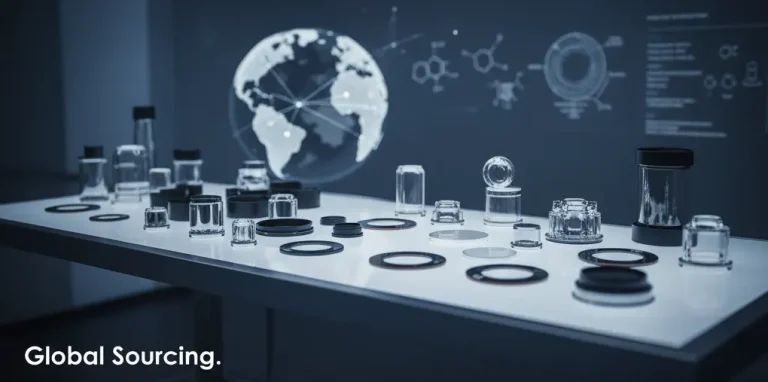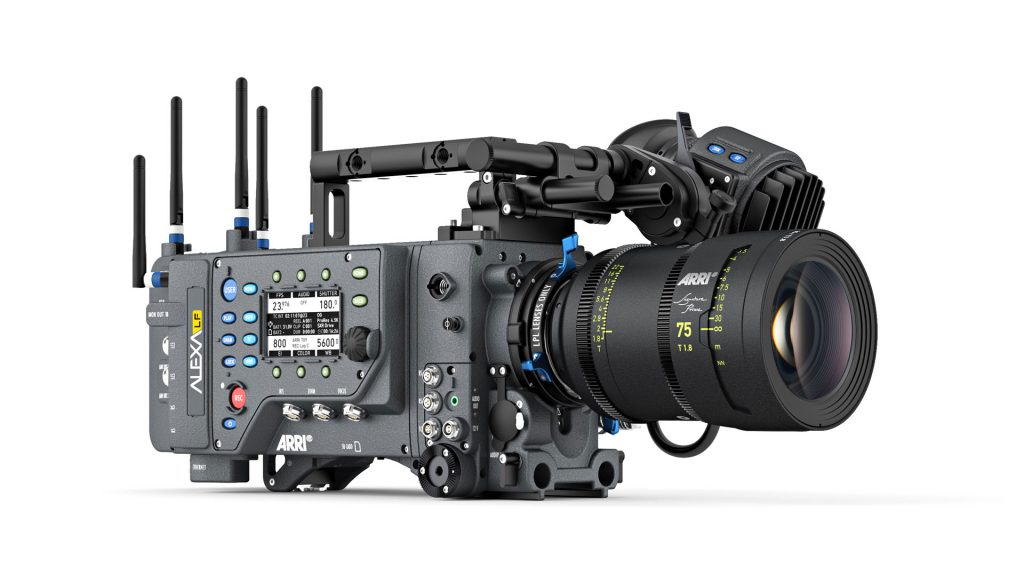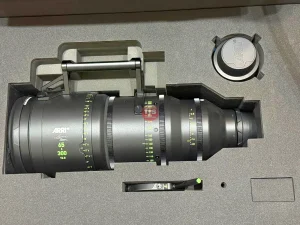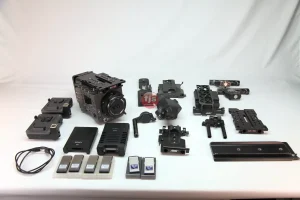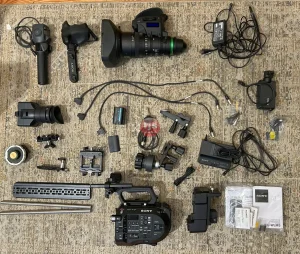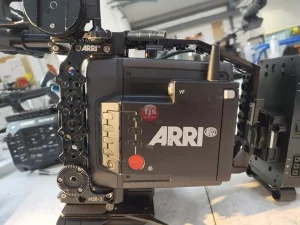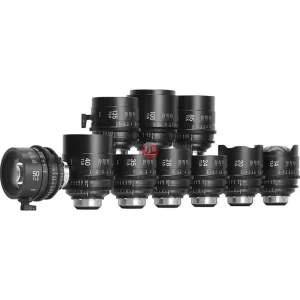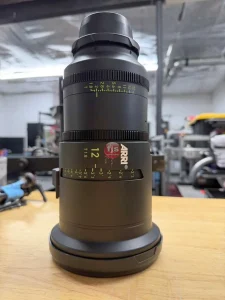The world of high-end cinema optics is one of extreme precision, cutting-edge materials, and specialized craftsmanship. When discussing brands like ARRI, synonymous with German engineering excellence, a common assumption is that every single component of their acclaimed cinema lenses, such as the ARRI Signature Primes or Master Anamorphics, is exclusively manufactured within Germany. While ARRI’s commitment to German design, assembly, and quality control is undeniable and foundational to their brand identity, the reality of globalized, highly specialized manufacturing for complex products like cinema lenses is far more nuanced.
The Nuance of ARRI Lens Component Sourcing
- Core Design and Engineering: Unquestionably GermanAt its heart, the optical design, mechanical engineering, and electronic integration for all ARRI cinema lenses are conceptualized and executed by ARRI’s expert teams in Munich, Germany. This is where the intellectual property, the precise specifications for lens elements, housing, and iris mechanisms, and the rigorous performance targets are established. This foundational work ensures the signature ARRI look and the robust build quality filmmakers expect.
- Specialized Optical Glass and Raw Materials: A Global Search for PerfectionThe production of high-performance optical glass is an incredibly specialized field. Different types of glass, with unique refractive indices and dispersion characteristics, are required to correct aberrations and achieve superior image quality. While Germany has world-leading optical glass manufacturers (e.g., Schott), ARRI, like many premium optical companies, sources specific glass types and raw optical materials from the best suppliers globally. This ensures they have access to the exact materials needed for their ambitious optical designs, regardless of origin, to achieve minimal chromatic aberration and maximum resolution.
- Precision Component Manufacturing: Strategic PartnershipsBeyond raw glass, components like lens barrels, focus helicoids, iris blades, and electronic contacts require extremely precise machining and finishing. While ARRI undoubtedly has in-house capabilities for critical components, it’s common practice in the high-tech industry to partner with specialized manufacturers for certain parts. These partners, who might be located in various countries, possess unique expertise or manufacturing processes (e.g., advanced CNC machining, specialized coatings) that meet ARRI’s exacting standards. The key is that these parts are produced to ARRI’s precise German-engineered specifications.
- Final Assembly, Calibration, and Quality Assurance: German MasteryCrucially, the final assembly, meticulous calibration, and rigorous quality assurance of every ARRI cinema lens take place at ARRI’s facilities, primarily in Germany. This is where individual lens elements are precisely mounted, mechanical tolerances are verified, and optical performance is measured and adjusted to meet ARRI’s industry-leading standards. This phase is paramount to ensuring the consistent cinematic quality and optical integrity across entire lens sets. This German-led integration and testing are what ultimately define an ARRI lens.
Key Features Influenced by Global Sourcing
- Optimal Optical Formulas: Access to the best global glass types enables complex, high-performance optical designs.
- Precision Mechanical Operation: Utilizing specialized manufacturing partners for components can ensure superior machining and durability.
- Consistent Performance: Despite varied component origins, final German assembly and calibration guarantee uniformity across lens sets.
- Innovation: Global sourcing allows ARRI to integrate the latest material science and manufacturing techniques into their products.
Benefits for Filmmakers
- Uncompromised Image Quality: Filmmakers get the benefit of lenses built with the finest materials and optical designs available worldwide.
- Reliability & Durability: The combination of robust design and precision manufacturing leads to lenses that perform flawlessly on set for years.
- Technological Advancement: ARRI can rapidly integrate new technologies and materials, offering cutting-edge optics.
- Peace of Mind: Knowing that the lens has undergone ARRI’s rigorous German-led final assembly and quality checks instills confidence.
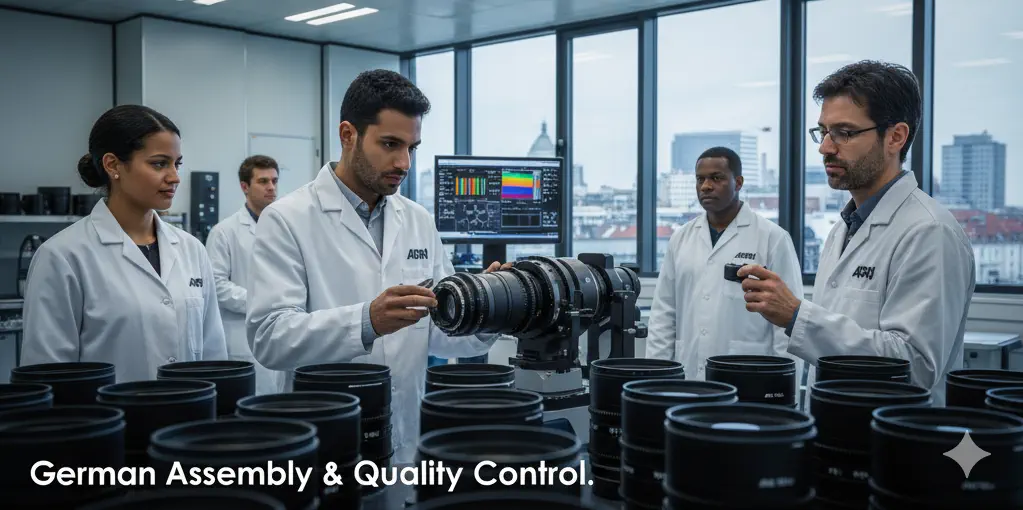
Conclusion
While ARRI is undeniably a beacon of German engineering, the idea that every single component of their cinema lenses is made exclusively in Germany is a simplification. The reality is a sophisticated global supply chain where ARRI’s German optical design, mechanical engineering, and final assembly are combined with the best specialized raw materials and component manufacturing found across the globe. This strategic approach allows ARRI to leverage worldwide expertise to produce lenses that consistently deliver the unparalleled optical performance, reliability, and cinematic quality that professional cinematographers demand. The “Made in Germany” essence of an ARRI lens stems from its design, its assembly, and its ultimate quality validation, not necessarily the origin of every single sub-component.
Questions and Answers
Q: If components are sourced globally, can ARRI still claim “Made in Germany”?
A: Yes. The “Made in Germany” designation typically applies when the substantial transformation, core intellectual property, final assembly, and quality control occur in Germany, which is true for ARRI lenses.
Q: Does ARRI use off-the-shelf components from other manufacturers?
A: While ARRI might partner with specialized manufacturers, these components are almost always custom-made to ARRI’s exact, proprietary specifications, not generic off-the-shelf parts.
Q: How does ARRI maintain quality with a global supply chain?
A: ARRI implements stringent supplier qualification processes, provides detailed technical specifications, and conducts thorough incoming inspections of components before they proceed to final assembly and quality control in Germany.
Q: Are ARRI lens coatings also applied in Germany?
A: Many specialized lens coatings are applied in-house or by very specific, trusted partners who can meet ARRI’s precise requirements for durability and optical characteristics, often under strict ARRI supervision.

